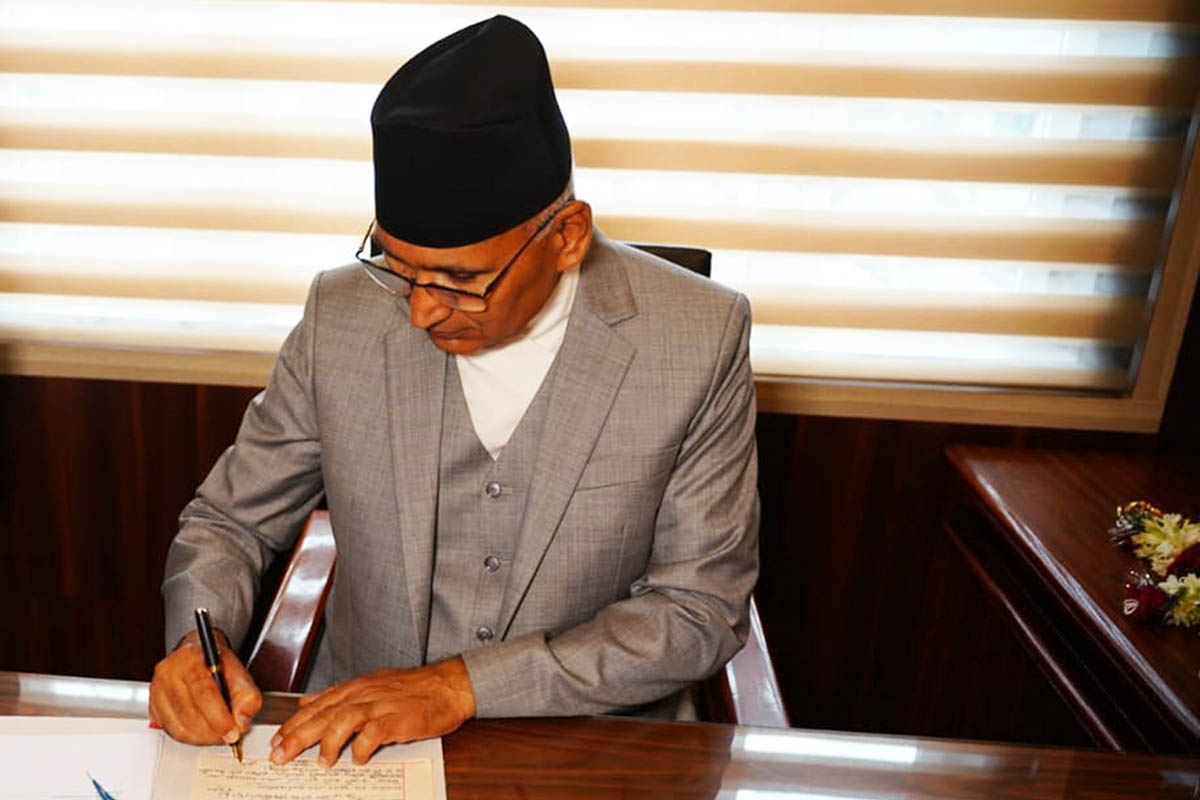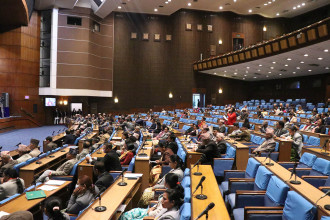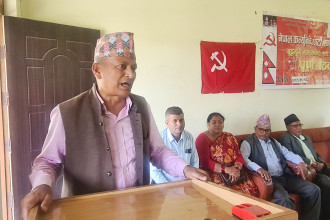
KATHMANDU: Officials from the Ministry of Finance (MoF) on Tuesday briefed Finance Minister Bishnu Prasad Paudel on the country's economic challenges and the measures needed to address them.
"Mainly, there are 46 challenges in Nepal's economy as observed by the Finance Ministry. Steps are required in 29 sectors to overcome these challenges," according to a press note issued by the MoF.
The MoF secretaries and joint secretaries briefed the minister on the country's economic status and proposed solutions.
In response, Finance Minister Paudel directed the officials to prioritise the challenges and move forward with resolving them.
The slow growth rate in the economic sector compared to the availability of resources; limited growth in savings, consumption, and investment; poor investment in the productive sector; and a significant gap in the import-export ratio have been identified as key challenges of the economy.
Additionally, unstable and slow economic growth, a massive financing gap, limited gross domestic savings, and significant internal migration resulting in a decreasing population trend in mountainous, hilly, and rural areas have also been identified as challenges.
The limited contribution of the productive sector to economic growth, poor productivity, and the decreasing trend of the industrial sector's contributions to the economy are equally alarming, as stated by the ministry.
Similarly, an import-based revenue system, poor export status, massive trade deficit, marginal growth in revenue collection and expenditure, ineffectiveness in capital expenditure, rising debts, and significant financial liability for loan repayment have been mentioned as major economic challenges.
The ministry has suggested reforms in 29 sectors to resolve the economic crisis.
According to the ministry, reforms should be achieved by ensuring effective public expenditure with prioritisation, improving the capacity to increase capital expenditure, emphasising fiscal strengthening, prioritising production-based revenue, promoting effective use of debts, reducing financing risks, boosting economic growth by creating a conducive environment for investment, and investing more in the productive sector.
The ministry has also explored ideas for accelerating the current economic slowdown, which include removing internal obstacles to attract foreign direct investment (FDI), focusing on the construction of hydropower projects and transmission lines, developing quality road networks, aligning rural roads with agricultural production and marketing, promoting the effectiveness of capital expenditure, and applying austerity measures in administrative costs.
Similarly, the MoF has stated that government investment should focus on economic infrastructure development, while foreign grants and concessional loans should be mobilised in national priority projects and climate change-related funds should be utilised.
Other suggested measures include maintaining the government's reserve fund, discouraging non-budgetary demands, ensuring loan disbursement in the productive sector, and controlling bad debts.
The MoF officials have recommended applying relaxed monetary tools to reduce the costs of fiscal tools while maintaining stability, providing project-based loans for SMEs, ensuring effective regulation of the fiscal sector, and developing a second-layer regulatory mechanism to oversee the cooperative sector.
Other ideas include encouraging the use of remittances in the productive sector, making migration work, and implementing policy and legal reforms to increase the inflow of foreign investment into the country.





-1745308675.jpg)
